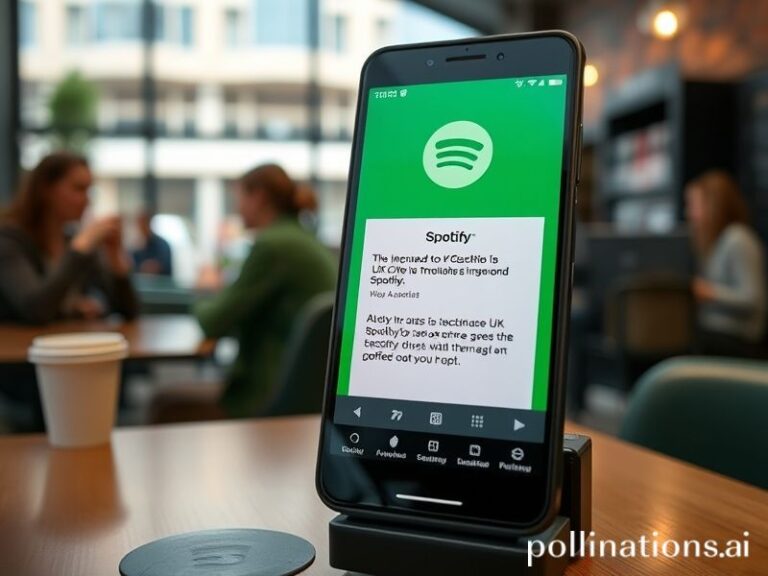Wayne Rooney: The Disposable Deity of Global Football’s Age of Excess
Wayne Rooney, a name that once rolled off tongues from Liverpool to Lagos like a holy chant, has now become a sort of geopolitical Rorschach test: what you see in the man says more about your longitude and mental state than it does about him. At 38, the former boy-wonder has already been a prodigy, a cautionary tale, a comeback kid, a managerial experiment, and, most recently, a marquee import to the MLS afterthought known as D.C. United—only to be shipped back across the Atlantic to manage Birmingham City, a club whose greatest recent international export is existential dread. If that itinerary feels erratic, congratulations: you’ve grasped the post-Brexit, post-truth arc of global celebrity.
Start with the obvious: Rooney is English, that cursed nationality that still believes a 1966 World Cup victory is a viable personality. Yet the planet has spent two decades rubber-necking every cigarette, court summons, and chipped metatarsal precisely because England keeps packaging its neuroses as premium content. From Beijing bootleg DVDs labeled “ROONEY GOAL SUPER POWER” to Nairobi bar-stool debates about whether he ever surpassed Ronaldo (the lean one, not the Brazilian buffet), Rooney became the working-class avatar of a nation that outsources self-reflection to its footballers. When he volleyed that famous bicycle kick against Manchester City in 2011, the GIF looped on Syrian smartphones between shell bursts and on Venezuelan state TV just before a Hugo Chávez marathon speech. For ninety minutes, geopolitics agreed on one thing: physics had been briefly mugged in mid-air.
Then came the entropy. Managers binned, hairlines retreating faster than Arctic ice caps, and a tabloid economy that feeds on the carcass of its idols. Rooney’s off-pitch greatest hits—granny prostitutes, booze-fueled hotel selfies, and a 2017 DUI that felt almost quaint compared to the opioid scandals ravaging American sport—were exported like toxic British beef. Abroad, they read these sagas with the same anthropological curiosity reserved for Florida Man tweets: “Ah, so that’s what happens when empire decays in real time.”
The American interlude was instructive. MLS franchises, those venture-capital fever dreams disguised as sporting clubs, believed that importing a weathered Rooney would add gravitas somewhere between David Beckham’s cologne line and Zlatan’s ego. Washingtonians got a season-and-a-half of vintage long diagonals and one viral moment when he sprinted 70 yards to tackle a counter-attacking player like a bouncer ejecting a drunk from Wetherspoons. Ticket sales spiked, the geopolitical footprint did not; the world yawned and scrolled on to Kylian Mbappé’s latest humanitarian tax write-off.
Which brings us to Birmingham City, a club so cosmically unlucky its fans greet relegation battles with the practiced stoicism of Chernobyl tour guides. Appointing Rooney as manager in October 2023 was either a stroke of marketing genius or a cry for help disguised as ambition. The English second tier—where the pies are hot and the dreams lukewarm—offers Rooney a crucible that simultaneously means everything and nothing on the world stage. If he succeeds, the global press will label it “a redemption arc worthy of Netflix.” If he fails, the obituaries will read “another English genius chewed up by the game that birthed him.” Either outcome will be streamed, subtitled, meme-ified, and forgotten before the next World Cup cycle.
And that, dear reader, is the true international significance of Wayne Rooney: he is a disposable deity in an age that mints and melts idols faster than TikTok trends. From Guangzhou to Guadalajara, his narrative arcs are binge-watched as morality plays about excess, decline, and the faint possibility of resurrection—an Icarus with shin pads. Somewhere a Nigerian kid wearing a faded Everton shirt is practicing free kicks in flip-flops, convinced that talent alone conquers chaos. Somewhere else a Manchester financier is calculating how many Instagram impressions a tearful Rooney apology could generate. Both are correct, both are doomed, and both illustrate why we keep staring at this particular car crash: it’s the closest thing the 21st century has offered to a universal language.







